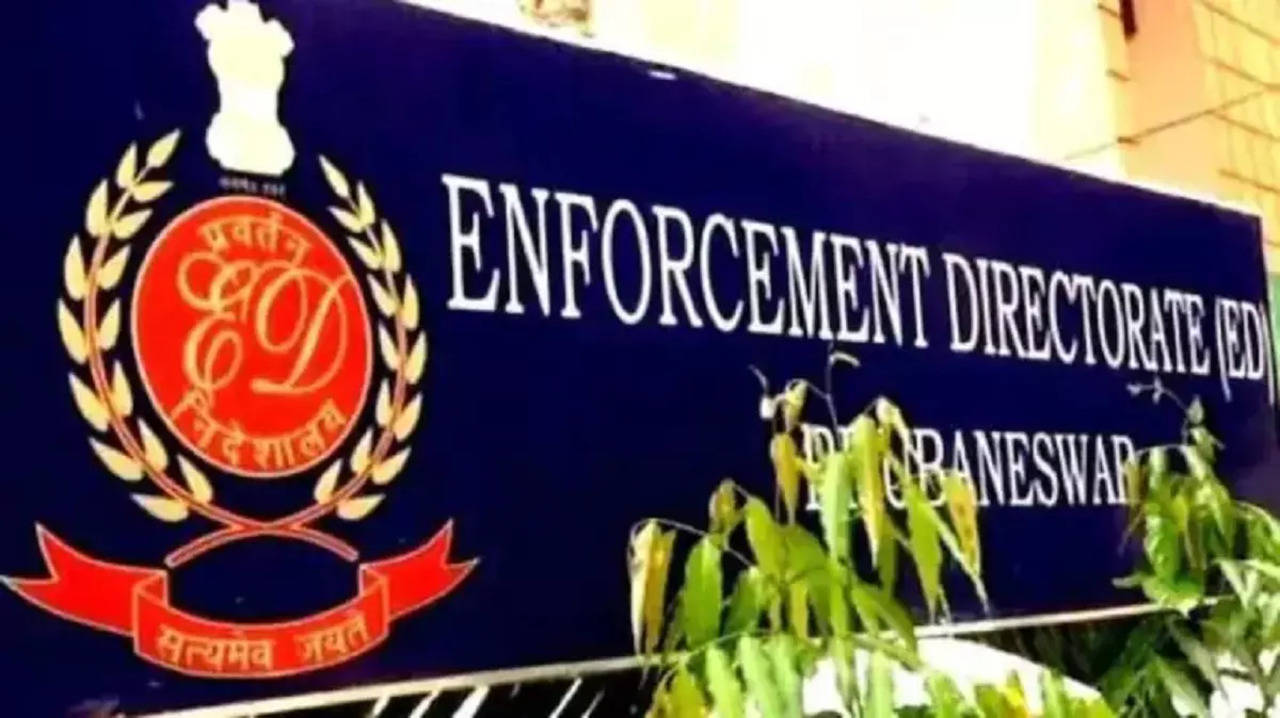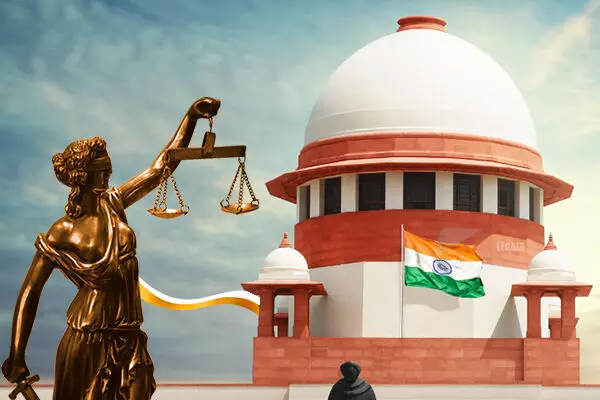Written by: Swapnil Mukherjee
Introduction
In the realm of combating economic offenses and financial malfeasance, the Enforcement Directorate (ED) of India stands as a formidable force. Established in the early 1950s, the ED has evolved into a pivotal agency tasked with enforcing economic laws, regulations, and ensuring the nation's economic stability and security. This article endeavors to provide an in-depth analysis of the Enforcement Directorate in India, examining its authority, scope, powers, challenges, and the significant role it plays in the country's financial landscape.
Historical Evolution of the Enforcement Directorate
The Enforcement Directorate's origins can be traced back to the post-independence era when India faced severe foreign exchange challenges. The need to combat economic crimes and protect the nation's economic interests led to the creation of the Directorate of Enforcement in 1956. Over the years, it underwent several transformations, eventually culminating in the Enforcement Directorate as we know it today.
Authority and Jurisdiction of the Enforcement Directorate
The Enforcement Directorate derives its authority and jurisdiction from several key acts and regulations:
Foreign Exchange Management Act (FEMA), 1999: FEMA is the cornerstone legislation governing foreign exchange transactions in India. The ED is primarily responsible for enforcing FEMA provisions and regulations, which include managing foreign exchange reserves, controlling capital flows, and regulating transactions involving foreign exchange or foreign securities.
Prevention of Money Laundering Act (PMLA), 2002: The PMLA empowers the ED to investigate and combat money laundering activities. Money laundering is the process of concealing the origins of illegally obtained money, typically by transferring it through a complex sequence of banking transfers or commercial transactions. The ED's primary role under PMLA is to trace and seize the proceeds of crime.
Customs Act, 1962: The ED also has jurisdiction under the Customs Act, particularly concerning cases related to the evasion of customs duties and offenses related to cross-border trade.
Other Relevant Acts: In addition to the above, the ED may also investigate cases related to the Prevention of Corruption Act, 1988, and the Conservation of Foreign Exchange and Prevention of Smuggling Activities Act (COFEPOSA), 1974, among others.
Scope of the Enforcement Directorate's Functions
The Enforcement Directorate has a multifaceted mandate that encompasses various aspects of economic and financial regulation. Its primary functions include:
Foreign Exchange Violations: The ED investigates cases involving violations of foreign exchange laws, including unauthorized foreign exchange transactions, money laundering related to foreign exchange, and cross-border financial crimes.
Money Laundering: Under the PMLA, the ED plays a pivotal role in combating money laundering. It tracks and seizes the proceeds of crime, ensuring that illicit funds do not enter the formal financial system.
Asset Forfeiture: The ED has the authority to seize and attach assets acquired through illegal means or obtained as a result of money laundering activities. This serves as a deterrent against economic offenses.
Cross-Border Crimes: With a focus on cross-border financial crimes, the ED collaborates with international agencies and organizations to investigate cases with international ramifications. This includes cases of financial fraud, tax evasion, and terrorism financing.
Adjudication: The ED is involved in adjudicating cases related to FEMA violations. It has the power to impose penalties and confiscate assets deemed to be in contravention of FEMA provisions.
Policy Formulation: The ED also plays a crucial role in the formulation of policies and regulations related to foreign exchange management and money laundering prevention in India.
Powers of the Enforcement Directorate
The Enforcement Directorate is vested with several significant powers to carry out its functions effectively:
Search and Seizure: The ED can conduct searches and seizures, subject to legal requirements, to collect evidence and seize assets obtained through illegal means.
Attachment of Properties: The Directorate has the authority to attach properties and assets believed to be proceeds of crime or connected to money laundering activities.
Provisional Attachment: The ED can provisionally attach properties during the investigation phase, even before a formal charge is filed.
Arrests and Custody: The ED can arrest individuals accused of money laundering offenses and hold them in custody for a specified period, subject to legal provisions.
Summoning and Examination: The Directorate can summon individuals for examination, compel the production of documents, and seek information related to its investigations.
Adjudication: The ED can initiate adjudication proceedings and impose penalties on individuals or entities found guilty of violating FEMA provisions.
Significance of the Enforcement Directorate
The Enforcement Directorate's role in India's financial ecosystem is of paramount importance for several reasons:
Economic Security: The ED's enforcement actions help safeguard India's economic security by preventing foreign exchange violations, illicit capital flows, and money laundering activities.
Deterrence: The ED's ability to seize assets and impose penalties acts as a significant deterrent against economic offenses and money laundering.
Terrorism Financing: The ED plays a critical role in investigating and preventing the financing of terrorism through the tracking of funds and assets.
Foreign Relations: Collaborating with international agencies, the ED ensures India's compliance with international standards and conventions related to financial crimes, contributing to positive foreign relations.
Policy Formulation: The Directorate's insights and expertise contribute to the formulation of policies and regulations aimed at strengthening India's financial framework.
Challenges Faced by the Enforcement Directorate
While the Enforcement Directorate wields substantial authority and plays a vital role in India's financial landscape, it also encounters several challenges:
Overburdened System: The ED often faces a high caseload, which can strain its resources and impact the speed and efficiency of investigations.
Legal Complexity: Economic offenses and money laundering cases can be legally complex and require specialized expertise. Navigating these complexities can be challenging.
International Cooperation: Investigating cross-border crimes often necessitates cooperation with foreign agencies and jurisdictions, which can be intricate and time-consuming.
Ensuring Fairness: Balancing the powers of asset attachment and arrest with individuals' rights and due process is a constant challenge.
Adjudication Delays: The adjudication process can sometimes be slow, resulting in delays in finalizing cases and determining penalties.
Notable Cases and Controversies Involving the ED
Over the years, the Enforcement Directorate has been involved in several high-profile cases and controversies:
2G Spectrum Scam: The ED played a significant role in investigating the 2G spectrum scam, a case of alleged corruption in the allocation of telecom licenses. The case garnered extensive media attention and led to the cancellation of several licenses.
INX Media Case: The ED's investigation into the INX Media case, involving allegations of money laundering against prominent individuals, generated widespread debate and controversy.
AgustaWestland Scandal: The ED was part of the investigative team looking into allegations of corruption in the procurement of AgustaWestland helicopters for the Indian Air Force.
Vijay Mallya Case: The ED played a role in the investigation against businessman Vijay Mallya, who faced allegations of financial irregularities and leaving the country to avoid legal action.
Cryptocurrency Crackdown: The ED has been involved in investigating cases related to the misuse of cryptocurrencies for money laundering and other illegal activities.
Conclusion
The Enforcement Directorate in India occupies a pivotal position in the nation's fight against economic offenses, money laundering, and the protection of its economic security. With a wide-ranging mandate and significant powers, the ED plays a crucial role in ensuring the integrity of India's financial system and protecting its interests in a globalized world. However, it also faces challenges related to resource constraints, legal complexities, and the need to balance its powers with individual rights. As India continues to evolve as a global economic player, the Enforcement Directorate will remain at the forefront of safeguarding its financial interests and combating financial crimes.








No comments:
Post a Comment